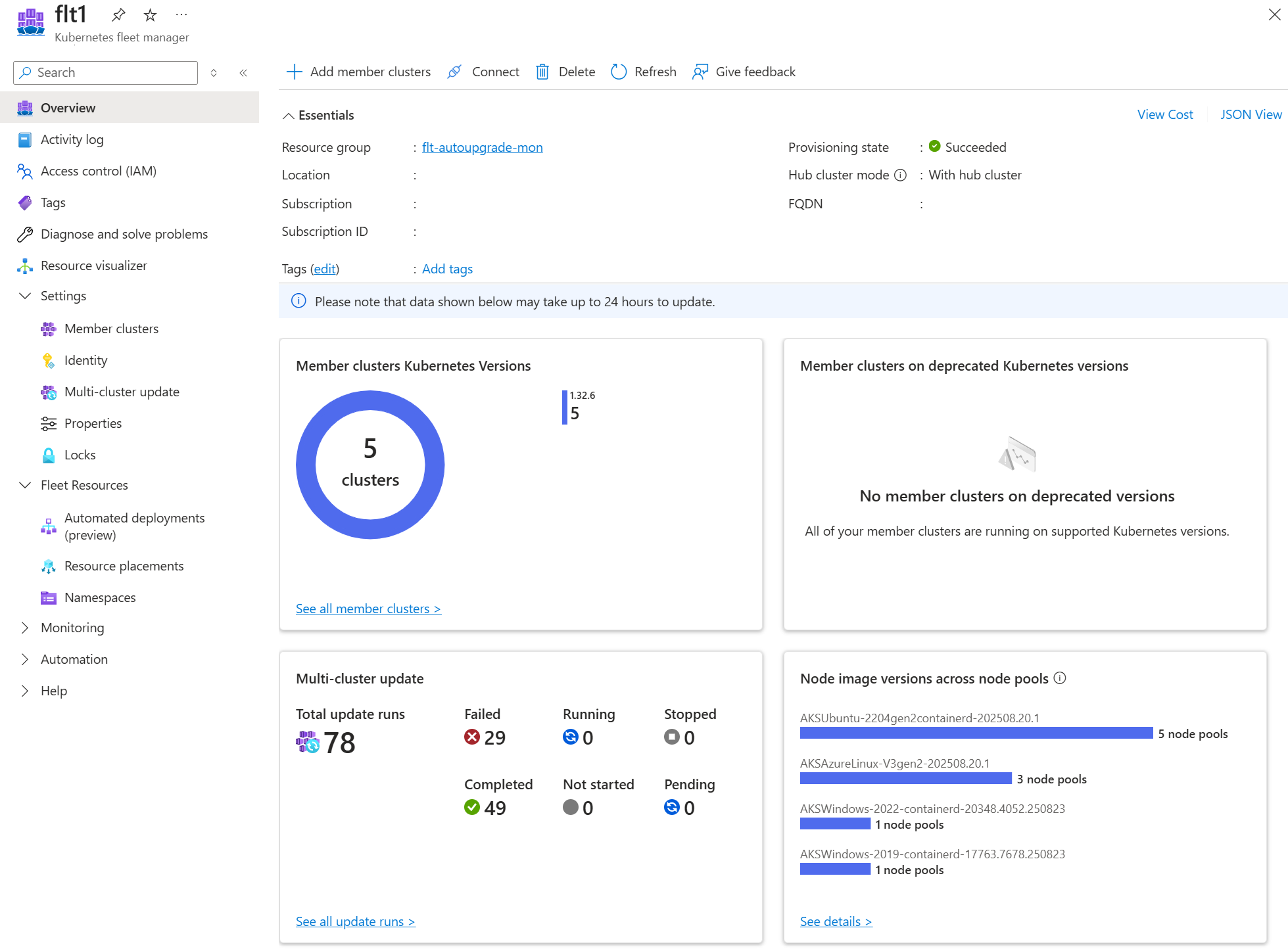Note
Access to this page requires authorization. You can try signing in or changing directories.
Access to this page requires authorization. You can try changing directories.
Azure Kubernetes Fleet Manager enables at-scale management of multiple supported Kubernetes clusters. Fleet Manager provides platform administrators with access to automated safe multi-cluster updates, intelligent Kubernetes resource placement, and a centralized location to access monitoring data for their clusters.
Fleet Manager supports the following scenarios:
Join AKS clusters across regions and subscriptions, as well as Arc-enabled Kubernetes clusters (preview) across clouds and on-premises as member clusters. Read Azure Kubernetes Fleet Manager member cluster types to understand more.
Use Fleet Manager managed namespaces to enforce resource quotas, network policies, and assign role based access at the namespace level across multiple clusters.
Safely and consistently apply Kubernetes version and node image upgrades across multiple clusters with update runs, attaching reusable update strategies to control the order and timing of cluster updates.
Include optional manual or automated approvals for update groups and stages to provide more fine-grained control over when updates are applied (preview).
Automatically trigger version upgrades when new Kubernetes or node image versions are published by defining one or more auto-upgrade profile.
Deploy a hub cluster to enable intelligent placing of Kubernetes resources across member clusters based on cluster labels and properties using Fleet Manager cluster resource placement and namespace-scoped resource placement.
Stage Kubernetes resources from Git repositories to Fleet Manager's hub cluster using Automated Deployments (preview).
Load balance incoming traffic across service endpoints on multiple AKS clusters using DNS-based load balancing (preview).
Next steps
- Conceptual overview of Fleets and member clusters.
- Conceptual overview of Update orchestration across multiple member clusters.
- Conceptual overview of cluster-scoped Kubernetes resource placement from hub cluster to member clusters.
- Conceptual overview of namespace-scoped Kubernetes resource placement from hub cluster to member clusters.
- Conceptual overview of DNS load balancing (preview).
- Create a fleet and join member clusters.
